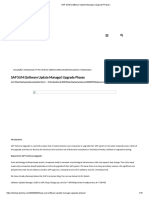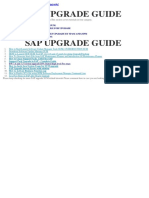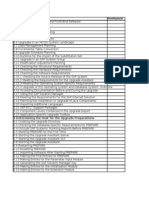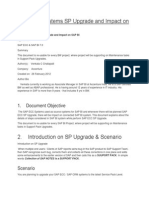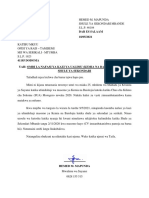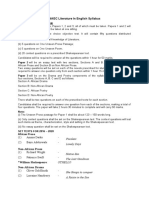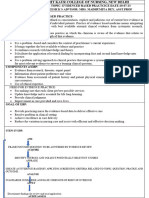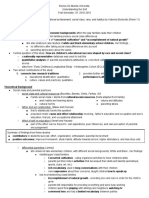0% found this document useful (0 votes)
263 views4 pagesSUM Process Step by Step For Version Upgrade
The SAP Software Update Manager (SUM) process for a version upgrade consists of six main steps: Extraction, Configuration, Checks, Preprocessing, Execution, and Postprocessing. Each step involves specific activities aimed at preparing, executing, and finalizing the upgrade while minimizing downtime and risks. Thorough preparation and validation at each step are critical for a successful upgrade.
Uploaded by
ganesh.bhaduryCopyright
© © All Rights Reserved
We take content rights seriously. If you suspect this is your content, claim it here.
Available Formats
Download as DOCX, PDF, TXT or read online on Scribd
0% found this document useful (0 votes)
263 views4 pagesSUM Process Step by Step For Version Upgrade
The SAP Software Update Manager (SUM) process for a version upgrade consists of six main steps: Extraction, Configuration, Checks, Preprocessing, Execution, and Postprocessing. Each step involves specific activities aimed at preparing, executing, and finalizing the upgrade while minimizing downtime and risks. Thorough preparation and validation at each step are critical for a successful upgrade.
Uploaded by
ganesh.bhaduryCopyright
© © All Rights Reserved
We take content rights seriously. If you suspect this is your content, claim it here.
Available Formats
Download as DOCX, PDF, TXT or read online on Scribd
/ 4
